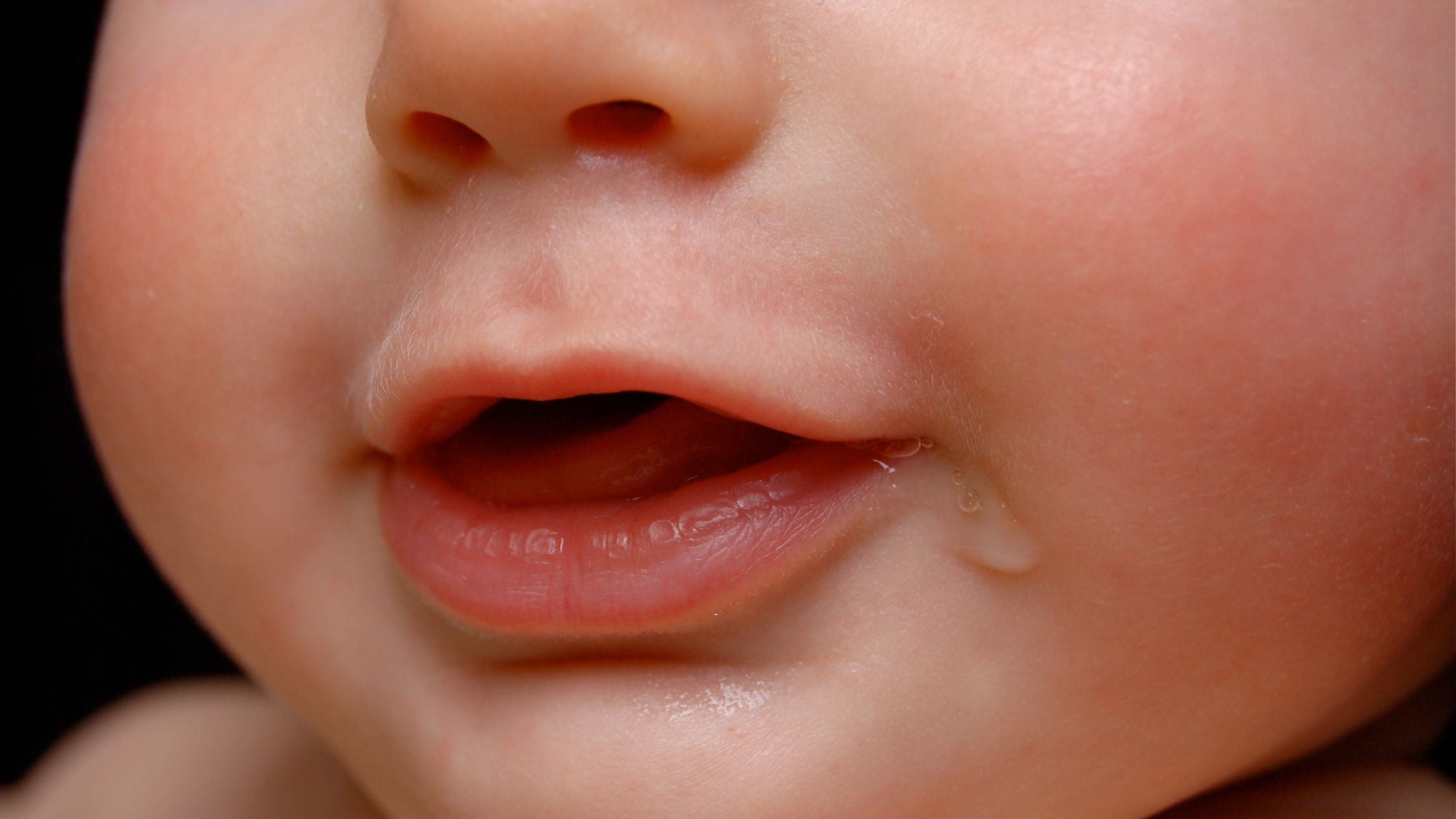Drool Rash vs. Eczema: What's the Difference?

Drool Rash vs Eczema: What’s the Difference?
Drooling is a normal, natural thing for babies. You might start to notice it more when your little one is around 2-3 months old and their salivary glands begin to kick in, or it might ramp up when they’re teething. And with drool can come drool rash – when persistent saliva on their delicate skin causes irritation and breaks down the skin barrier, resulting in redness and inflammation.
As drool rash can look similar to eczema, these two conditions can sometimes get confused. You may wonder whether your little one is dealing with drool rash or something more serious like eczema. It’s best to see a medical professional to confirm whether your little one has drool rash or eczema so you can follow the right treatment path.
Today, let’s explore the key differences in these two conditions, and some ways to support your little one’s skin towards recovery.
What does drool rash look like, and how does it differ from eczema?
Drool rash typically appears as raised, red patches of skin that may look chapped or have tiny red bumps. It’ll show up in areas where your little one’s dribble tends to sit – usually around the mouth, chin, cheeks, neck or chest. A drool rash is caused by excessive saliva on the skin, which can happen more often when your baby is teething or if they have other health issues that can cause drooling.
Eczema can present as a similar-looking rash; however, it is usually red, itchy, and dry and can also have little fluid-filled bumps. A key difference is that eczema can be more widespread and affect other areas of the body that aren’t as likely to be affected by saliva. While eczema flare-ups can be triggered by saliva on the skin, it is a more complex condition caused by a combination of genetic and environmental factors.
It’s best to see a doctor to confirm whether your little one has a drool rash or eczema. As the conditions require different treatments, getting the correct diagnosis is crucial so you know how best to support your little one.
How can you prevent drool rash?
As drool rash is caused by saliva sitting on the skin for long periods, it’s best to try and keep your little one’s skin clean and dry by wearing bibs and gently wiping away saliva regularly, especially after feeding. It can be helpful to carry a soft burb cloth on you to gently dab their face and neck throughout the day and change their bib or clothing if it becomes too wet.
You can also use an emollient or barrier cream to soothe and protect areas prone to drool rash – just be sure to check with your doctor before using any products close to your little one’s mouth. Limiting the use of pacifiers, which can encourage saliva to sit around the mouth, can also help control drool rash.
How do treatments for drool rash differ from eczema treatments?
As the treatments for drool rash and eczema differ, it’s best to get a diagnosis from your medical professional so you know what you’re dealing with. They can also provide you with a personalised treatment plan – treatment options will depend on their specific symptoms and the underlying causes of their condition.
Generally speaking, drool rash can often be controlled by keeping the area as clean and dry as possible and using a gentle cream to soothe the area and provide a barrier. Your doctor can advise on a suitable cream that's safe to use around baby’s mouth. When wiping around baby’s mouth, always use a soft cloth and a gentle dabbing motion to prevent further irritation.
Treating eczema can be more complex and may involve a combination of a gentle skincare routine, lifestyle changes and avoiding triggers (which can differ from person to person). Prescription creams and medications may also be needed.
If your little one’s rash isn’t getting better, or it starts to worsen or crack, ooze, weep or crust, or they show signs of a fever or infection along with the rash, see your medical professional for advice.
This blog post was brought to you by the Itchy Baby Co. team xx
Disclaimer: Information provided is of a general nature only, and you should always consult your medical professional.





